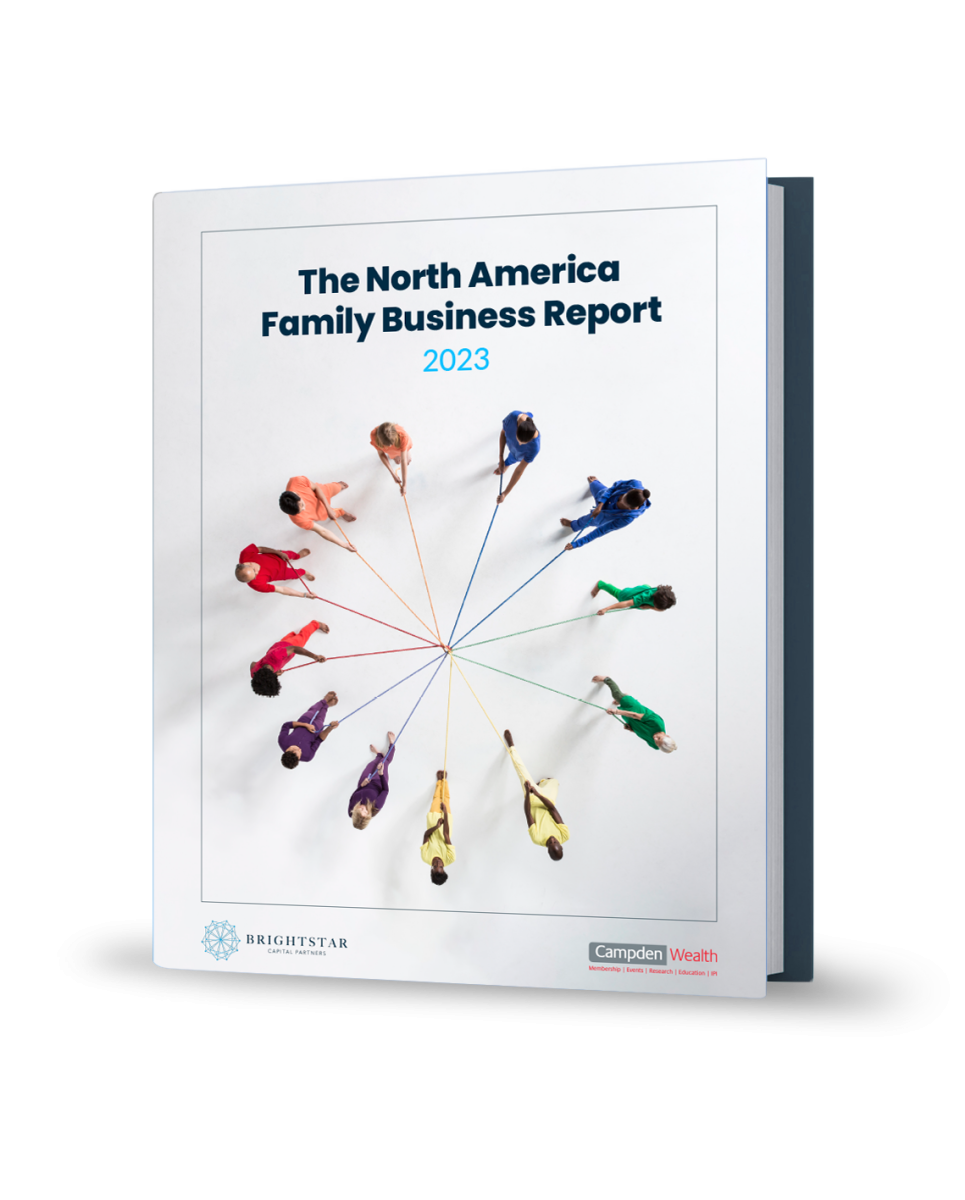Sustaining the family business: The importance of listening to Next Gens

As revealed in The 2023 North America Family Business Report from Campden Wealth and Brightstar Capital, considering Next Gens’ experience, insight and opinion is vital to ensure future success.
The report found that, when Next Gens are involved, their overarching objective is to protect and sustain the family business (according to 81% of respondents) and, to achieve this goal, most Next Gens already assume leadership roles. 37% of respondents report that Next Gens act as board members, and 27% say they hold a senior management / executive role. Another typical route to get involved is by working for the family business on a project basis (25%) or by engaging in philanthropy (24%).
“Typically, the broader the experience a Next Gen can obtain, the more rounded they will be and able to take on the challenges their family business might pose,” says Caroline Kitidis, global head of ultra high net worth at HSBC Global Private Banking. “A blended approach of working in the family business, outside the family business and even higher-level education can all bring benefits. For the Next Gen, demonstrating they are gaining their positions based on merit can help them and the other employees in the family business, instilling a culture of fairness and transparency.”
Every family constellation is different and every family business is unique.
“While there are overarching themes facing family enterprises, every family constellation is different and every family business is unique,” says clinical and consulting psychotherapist Dr. Paul Hokemeyer. “As such, the path towards leadership in the family enterprise needs to reflect the person on the journey as well as the terrain over which they are travelling.
“Certainly, family members need to develop core skills in leadership as early as possible. Ideally, this training occurs early in their life through sports, the arts or community engagement. Secondly, future family leaders need to understand the business in which they operate. This can occur within the family business or through outside businesses operating in the same industry. The key to success is allowing the family member’s journey to be self-directed. When the journey is dictated from above through authoritarian power it will diminish rather than enhance future generation’s motivation and ultimate success.”

Indeed, such encouragement and motivation may well be vital in ensuring the future involvement of the Next Gen. 47% of companies surveyed in the report were established in the 1950s or earlier and families, who are naturally proud of their legacy, want to retain control of the company, with 91% of respondents indicating that the family has no intention of changing the ownership structure.
However, a significant 9% plan to either reduce the family’s stake or sell the business, of which 6% would want to reduce the family’s stake but retain significant interest.
“Retaining the family business as a ‘legacy’ of the family’s success can work well so long as the business is successful,” says Charles A. Lowenhaupt, ultra-high-net-worth (UHNW) family counsellor and author of The Chase Continues. “Unfortunately, too many businesses cannot continue their success. Nowhere is this more visible than in the newspaper business, where a family’s prominence in society can be established (and often was established) in ways that are no longer effective. So the legacy business becomes obsolete, and the family can struggle to find relevance. In fact, true family legacy can be established by the individual success of family members in chasing their own dreams. Blind loyalty to the family business can be dangerous and needs to be considered carefully.”
“The transition between generations poses challenges, particularly when maintaining family control,” says Kitidis. “As businesses move from owner-managed to extended family managed, complexities arise, especially for larger and more dispersed families. With rising wealth creation and new entrepreneurs, planning for succession is crucial. Early preparation and engaging trusted experts who provide guidance and expertise remains crucial. As the need for succession planning persists, finding the right partners who provide guidance and expertise remains essential.”
Starting the family’s priorities and addressing their primary challenges is key.
The report – which surveyed more than 100 family businesses from the United States and Canada with an average annual revenue of more than $340 million – found that a board of directors is deemed the most important tool a company can employ to achieve good governance (64% of respondents). Families also rely on a family office (45%), written values and goals for the family business (33%), and / or a family council (31%) when looking to balance family relationships and business interests through governance bodies. Two-thirds of those surveyed think such governance structures are effective when resolving family disputes.
“A good starting point is to understand what the challenges are and the initial priorities,” says Kitidis. “Which governance is perceived to be the answer? For instance, good board governance won’t solve issues involving family members not working in the business. There are many resources and organisations to access, but it’s important to remember each family is different and standard solutions are unlikely to be the answer - starting the family’s priorities and addressing their primary challenges is key.”
The report found that Next Gens also want to embrace digital transformation and increase the use of technology (according to 24% and 23% of respondents, respectively). Many believe it’s this drive to innovate and embrace digital transformation and increase the use of technology that will help to sustain family businesses for generations to come.

“A vast majority of respondents believe that Next Gens' number one priority is to protect and sustain the business,” says Dr Anne Henow, Campden Wealth’s associate director of research. “Based on this, we can expect new tech investments if these positively promote business interests. The report also shows which technologies will likely shape operations in the future. Artificial intelligence, robotics and the internet of things are considered most impactful for the family business over the next five to ten years (according to 49%, 44%, and 43% of respondents, respectively). Keeping ahead of the curve when looking for innovative solutions, 32% also believe blockchain will transform business in the coming years.”
“Next Gens show a desire to innovate and embrace digital transformation,” says Michael Drexler, managing director of Brightstar Capital Partners. “But it’s not just about the incoming generation. Family businesses are far more innovative than they are given credit for, that is why they are so often able to survive and thrive through various economic cycles.
Over half of those surveyed (55%) have also adopted or intend to adopt either formal or informal ESG policies. The top three factors driving ESG adoption are: alignment with family values (52%), reputation risk (38%), and customer awareness (31%). The ESG themes most likely to influence decision-making in the family business are climate change, pollution and waste, and diversity, equity, and inclusion (DEI) (each 44%).
“Next Gens are the drivers of the impact movement,” says Iranian-born, Texas-raised Next Gen family member Leila Zakhem. “What I'm seeing more is not only Next Gens making decisions based on sustainable investment, but many are also starting social entrepreneurial ventures and impact funds. Next Gens are really putting their money where their mouths are.”








